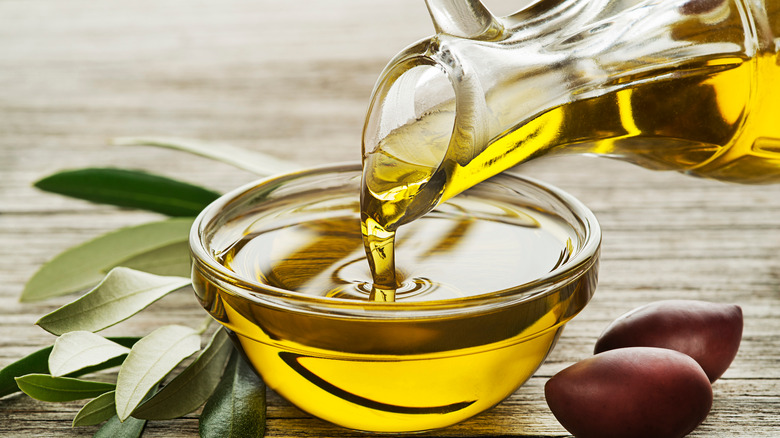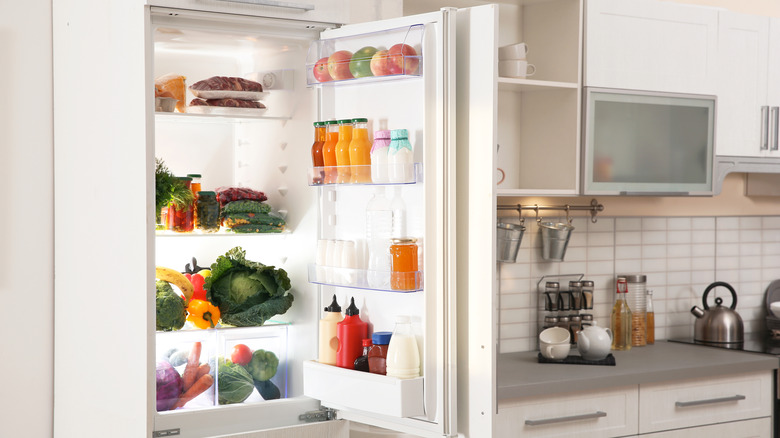You Should Never Refrigerate Olive Oil. Here's Why
Olive oil is one of the world's most versatile foods, full of a wide variety of colors, aromas, and flavors. It is a healthy fat that is used in many households for everyday dishes, according to The Spruce Eats. It doesn't matter what you are in the mood to eat, as olive oil will surely have you covered. You can use it for frying, sauteing, baking, and even mix it into salad or pasta. The flavor profiles of an extra-virgin olive oil will enhance any old salad by adding a rich, smooth texture and rich taste to each bite of your crunchy veggies.
According to Epicurious, many cooks routinely keep a bottle handy right by the stove, as it's easiest to get to when cooking. However, the particular placement of your olive oil can get tricky (hint: it shouldn't be right next to the stove). Preserving the flavor in your olive oil is important to maintain the quality of all your delicious meals at home. Indeed, there are specific ways to ensure that your newly bought bottle stays up to par with what you are expecting.
Keep olive oil in a cool place, but not too cool
The best place to store your olive oil is in a cool dark place, like a cabinet or in the back corner on your counter. You know, the one that's most likely filled with boxes of snacks and bread. About Olive Oil says that olive oil generally shouldn't be cooled and warmed over and over. This temperature cycling will mess up the flavor and could make the oil go rancid faster. Believe it or not, olive oil should be used up within a few months of unscrewing the cap.
Lest you get any ideas, storing it in the fridge is too cool for even the cheapest of oils. If olive oil gets too cold, crystallization will begin due to the waxy esters that are in oil (via About Olive Oil). Granted, you can easily run the bottle under hot water to liquify it again, but this again introduces temperature changes that could impact the quality and flavor of the warmed-up oil. No one wants a musty olive oil, believe us.
Instead, olive oil should be sealed tightly and placed in a cabinet away from sunlight to ensure flavor and texture. This may be a tad bit more tedious than having the oil at arms reach next to the stovetop, but your cooking and your taste buds will thank you later.

